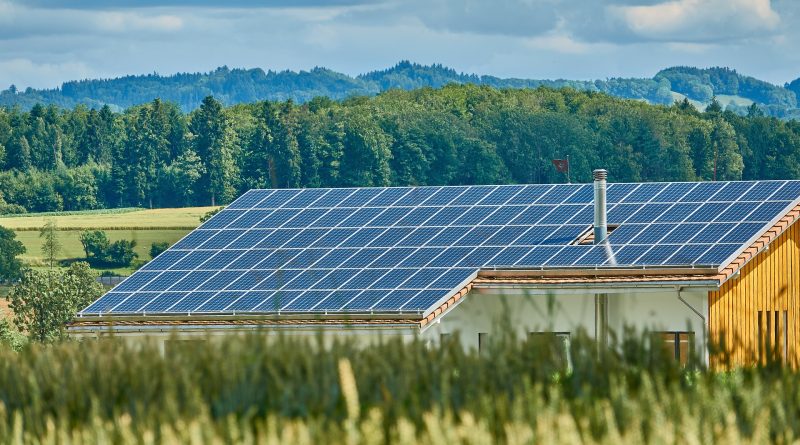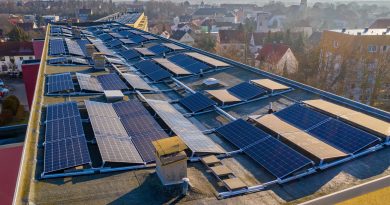Benefits of On-Grid Solar Rooftop Plants for DISCOM
In recent years, there has been a growing interest in renewable energy sources such as solar power. Solar energy has the potential to reduce greenhouse gas emissions and dependence on fossil fuels, making it an attractive option for many industries. One area where solar energy is making significant strides is in the installation of on-grid solar rooftop plants. These plants, when connected to the grid, can provide numerous benefits for DISCOM (Distribution Company) as well as for the overall electricity system. This blog aims to explore the advantages of on-grid solar rooftop plants and how they can help DISCOM fulfill their power supply requirements efficiently.
The following are the Benefits of On-Grid Solar Rooftop Plants for DISCOM
1. Reduction in Peak Load Demand
On-grid solar rooftop plants have the capacity to generate electricity during peak hours when the demand for power is at its highest. This can significantly reduce the strain on DISCOM’s power supply infrastructure, as solar energy can offset a substantial portion of the electricity required during peak load periods. By utilizing the power generated from on-grid solar rooftop plants, DISCOM can optimize their power generation and distribution, ensuring a more stable and reliable supply of electricity to consumers.
Moreover, the integration of on-grid solar rooftop plants allows DISCOM to counterbalance the fluctuating nature of solar energy with other sources of power generation. During times of low solar availability, DISCOM can rely on conventional power sources, effectively managing the variations in demand and ensuring uninterrupted power supply to consumers.
2. Decreased Transmission and Distribution Losses
One of the significant advantages of on-grid solar rooftop plants is their close proximity to the consumer load centers. By generating electricity directly at or near the point of consumption, the need for long-distance transmission of power is reduced. This results in a significant decrease in transmission and distribution losses that typically occur when electricity is transported over long distances.
Additionally, on-grid solar rooftop plants can contribute to a more decentralized power generation system, reducing the strain on existing transmission infrastructure. This decentralization ensures that power generated is consumed locally, minimizing losses during power transmission and maximizing overall system efficiency.
3. Revenue Generation for DISCOM
On-grid solar rooftop plants can provide an additional source of revenue for DISCOM through the sale of excess power generated back to the grid. When the solar panels generate more power than consumed locally, excess electricity is fed into the grid, allowing DISCOM to purchase this surplus power and distribute it to other consumers. This process, known as net metering, enables DISCOM to earn revenue from the surplus power generated by on-grid solar rooftop plants. This revenue can offset DISCOM’s power purchase costs and reduce the overall financial burden on the company.
Moreover, DISCOM can also benefit from the Renewable Energy Certificates (RECs) obtained from on-grid solar rooftop plants. These certificates can be sold to obligated entities, such as industrial and commercial consumers, who are required to meet renewable energy purchase obligations. By participating in the REC market, DISCOM can generate additional revenue streams, contributing to the financial stability of the company.
4. Environmentally-Friendly Solution
The use of solar energy helps mitigate the adverse impacts of climate change by reducing carbon dioxide emissions. Additionally, solar power generation does not produce any harmful pollutants that can affect air quality or contribute to health issues. By embracing on-grid solar rooftop plants, DISCOM can contribute to the transition towards a sustainable and eco-friendly energy system.
On-grid solar rooftop plants offer significant environmental benefits due to their clean and renewable nature. By utilizing solar energy, DISCOM can reduce the dependency on conventional power sources such as coal or gas-fired power plants, which are major contributors to greenhouse gas emissions and air pollution.
Conclusion
Ready to revolutionize your energy landscape? SolarClue® is your comprehensive solution for on-grid solar rooftop plants. From enhancing grid stability to maximizing cost efficiency, our expert guidance and top-quality products ensure a seamless transition. Explore the benefits of renewable energy compliance, community engagement, and technological innovation. SolarClue® empowers DISCOMs with cutting-edge on-grid solutions, fostering a resilient and eco-friendly energy future. Make the smart choice for your energy infrastructure. Choose SolarClue® and embark on a sustainable journey. Contact us today to revolutionize your energy landscape with on-grid solar solutions that make a difference.
Frequently Asked Questions
On-grid solar plants provide a consistent and reliable source of electricity, enhancing grid stability and reducing the risk of disruptions.
Yes, on-grid solar plants generate maximum power during daylight hours, aligning with peak demand periods and aiding DISCOMs in effective peak load management.
On-grid solar installations can reduce operational costs for DISCOMs by providing additional electricity during high-demand periods, potentially lowering the need for expensive peak power.
Investing in on-grid solar helps DISCOMs meet renewable energy compliance targets, aligning with sustainability goals and environmental regulations.
On-grid solar plants, being located close to the point of consumption, minimize transmission and distribution losses associated with transporting electricity over long distances.
Yes, DISCOMs can implement net metering policies, allowing them to credit excess energy produced by consumers back to the grid, creating an additional revenue stream.
On-grid solar adds a layer of energy security by diversifying the energy mix, reducing dependence on conventional power sources and ensuring a more resilient energy infrastructure.
Yes, implementing on-grid solar projects fosters community engagement and raises awareness about the benefits of renewable energy, enhancing the relationship between DISCOMs and communities.
DISCOMs embracing on-grid solar solutions encourage technological advancements and innovation within the energy sector, leading to more efficient grid management.
On-grid solar plants contribute to the reduction of greenhouse gas emissions, providing long-term environmental benefits. Additionally, economic benefits include lower maintenance costs and potential revenue from carbon credits.




